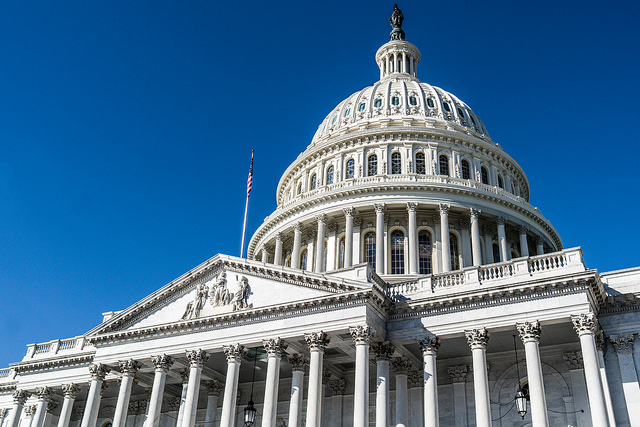
Americans for Tax Reform (ATR) this week joined a coaltion of 26 free-market, limited-government, and liberty-oriented groups calling on Congressional lawmakers to use the powers granted under the Congressional Review Act (CRA) to repeal the Consumer Financial Protection Bureau’s (CFPB) recently published rule relating to arbitration agreements.
The CFPB’s arbitration rule would do little in the way of benefiting American consumers, and instead would result in a flood of class-action lawsuits putting more money in the pockets of trial lawyers. The arbitration rule would cost consumers billions and lead to a projected 6,000 class action lawsuits every five years.
According to the CFPB’s own study, average payouts to consumers after litigation was less than $2.00 per person, which is significantly lower that the amount awarded during the arbitration process. The same study found that only 20 percent of class-action lawsuits are approved and among those the average wait time for a settlement was roughly three years. This is compared to the arbitration process where the wait time is an average of only 6.9 months.
Text of the letter is below and can be found here.
Dear Speaker Ryan and Senate Majority Leader McConnell:
We, the following free-market, limited-government, and liberty-oriented organizations, ask you to use the Congressional Review Act (CRA) to reverse recently published rules promulgated by the Consumer Financial Protection Bureau (CFPB) ending long-held policy allowing for binding arbitration contracts. Failure to reverse this regulation will result in an avalanche of class-action lawsuits that will hurt jobs and do little to benefit consumers.
The CFPB’s arbitration rule has been described as “Christmas in July” for America’s trial lawyers – and rightly so. According to the CFPB’s own finding, the rule will cost consumers billions of dollars and unleash over 6,000 class action lawsuits every five years. This rule is an obstacle to the efforts to right America’s fiscal ship and create jobs and prosperity for the American people.
Class action lawsuits primarily benefit the trial lawyers rather than the plaintiffs they claim to represent. One extreme example regarding the Bank of Boston even resulted in some of the “winning” plaintiffs owing more in legal fees to lawyers, who walked away with millions, than the meager winnings they received. Class-action lawsuits all too often benefit no one but lawyers, and arbitration provides a fair alternative that should not be prohibited by regulatory fiat.
The CFPB’s own report provides undermines the case for relying exclusively on class-action lawsuits. Of the minority of cases filed between 2010 and 2013 that were later settled, consumers received on average only $32, while lawyers received $424 million in total fees. This disparity is due in part to the fact that claims are never filed by the vast majority of those in an eligible class, and lawyers receive fees based on inflated award figures that are never paid out.
There are also significant issues with the structure of the CFPB and its overall lack of accountability to elected officials. A United States Court of Appeals has held that “when measured in terms of unilateral power, the Director of the CFPB is the single most powerful official in the entire U.S. Government, other than the President. Indeed, within his jurisdiction, the Director of the CFPB can be considered even more powerful than the President.”
As a rehearing of this ruling on the CFPB’s constitutionality by the full Circuit is currently underway, and Congress weighs its own various options to rein in the unaccountable agency, CFPB should at the very least be prevented from instituting major new rules that could disrupt large segments of the economy until such issues are resolved. This is a prime opportunity for members of Congress to uphold their oaths to support and defend the Constitution by safeguarding the nation from costly new CFPB regulations.
The Congressional Review Act provides 60 legislative days for Congress to reverse the CFPB’s decision. Each day, the clock ticks and the window of opportunity closes. We urge you to work together and reverse this job-killing regulation promulgated by an agency that is unconstitutionally structured.
Photo credit: Phil Roeder

